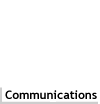
American Society for Microbiology Cautions that Scientific Publication
Restraints May Have Negative Impact on Public Health and Safety
CONTACT:
Janet
Shoemaker
Director, Scientific and Public Affairs
202-942-9294
jshoemaker@asmusa.org
Washington, D.C.—October 10, 2002--The American
Society for Microbiology (ASM) recognizes the legitimacy of concerns about
the publication and dissemination of scientific information that could be
misused by bioterrorists but cautions that stringent restraints on
scientific publication may ultimately have a negative impact on public
health and safety, ASM President Ronald M. Atlas, Ph.D., testified before
the House Science Committee hearing on “Conducting Research During the War
on Terrorism: Balancing Openness and Security.”
The ASM agrees that we must deny scientific and
technical information to terrorists and that we must enhance laboratory
security. “However, if policy measures to prevent terrorists from
acquiring pathogens, equipment and technical information are not crafted
with great care, they may have a significantly adverse effect upon
critically important research activities,” he said. “National security may
be best served by allowing free flow of all scientific and technical
information that is not directly connected to technology deemed critical
to national security.” In the latter case, such information would continue
to be classified, he noted.
The ASM, he said, seeks to achieve a proper balance
between necessary security and vital scientific research and publications.
As a publisher of 11 peer-reviewed journals, the ASM has adopted specific
policies and procedures for careful scrutiny of manuscripts dealing with
select agents, the organisms and toxins deemed most likely to pose a
bioterrorism threat. The ASM will not publish papers that violate the ASM
Code of Ethics or other standards, such as the NIH guidelines on
recombinant DNA research.
However, ASM continues to require that research
articles contain sufficient detail to permit the work to be repeated by
others. “If scientists cannot assess and replicate the work of their
colleagues, the very foundation of science is eroded,” Atlas said.
“Indeed, the risk to public health and safety may be greater from
restricting research than from allowing the publication of research that
could be read by a wrongdoer.”
The best defense against anthrax or any other
infectious disease is information, he said, that can be used by scientists
and public representatives to guide rational and effective actions to
ensure public safety. “Placing major barriers in the path of the flow of
information ultimately may contribute to terrorism by interfering with our
ability to prepare and respond to the threat of the misuse of science by
bioterrorists,” Atlas said.
We must recognize, he said, that scientific knowledge
may have dual application, for beneficial or for malicious purposes.
Research to make new drugs might be used to develop bioweapons. Genomic
data that are valuable for identifying new drug and vaccine targets could
also be used to increase the virulence of microbial agents or counter
currently available therapies.
For these reasons, identifying “sensitive” information
is difficult and complicated. “There is no common definition of what is
dangerous or sensitive information, and no individual is empowered to
decide what is potentially dangerous knowledge,” Atlas said.
Responsible oversight and reasoned discussion are
important at this critical juncture. At the request of the ASM, the
National Academy of Sciences has agreed to convene a meeting of scientific
publishers within the next few months. The meeting will focus on
developing common policies regarding review and publication of manuscripts
dealing with research that could present public safety issues and on
identifying “sensitive” information and policies to screen information in
a manner that will not interfere with or jeopardize research. “We feel
that a self-imposed code of responsible conduct and oversight is
preferable to a mandated regime,” Atlas said.
Discussions among scientists on appropriate measures
for security in undertaking and publishing research must also include the
national security community, Atlas pointed out. “Both communities must
share a common goal of discouraging the development of biological weapons
while taking into account the traditional and necessary openness of
scientific research.”
“Ultimately,” he said, “open and collaborative research
is key to US technological advances and to the protection of our citizens
against infectious disease and bioterrorism.”
The complete testimony can be viewed at http://www.asmusa.org/pasrc/researchsecuritytest.htm
Atlas is Dean of the Graduate School and Co-Director of the Center for the Deterrence of Biological Warfare and Bioterrorism at the University of Louisville.
The American Society for Microbiology is the largest single life science society, composed of over 42,000 scientists and health professionals worldwide. Its mission is to promote research and research training in the microbiological sciences and to assist communication between scientists, policy makers, and the public to improve health, the environment, and economic well-being.
# # #
Email: webmaster@asmusa.org
All rights reserved
